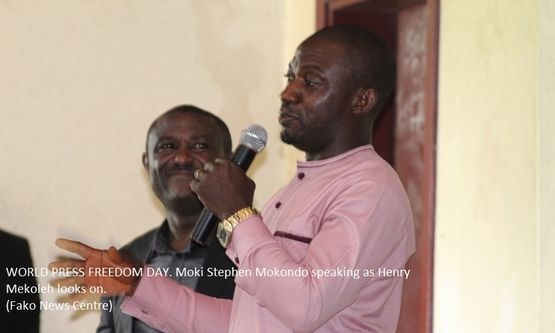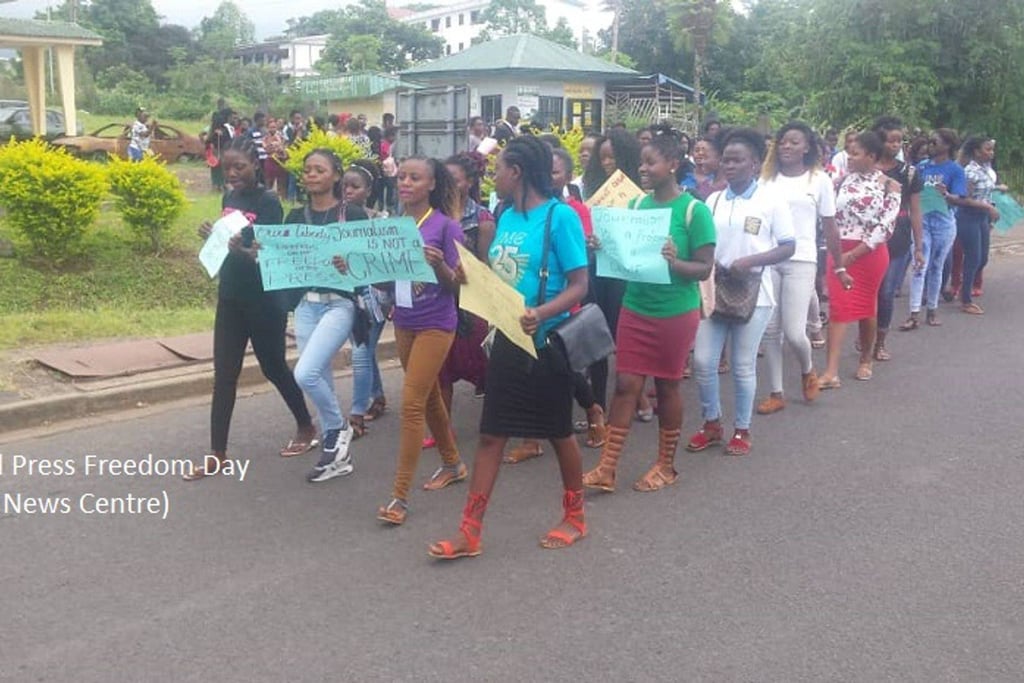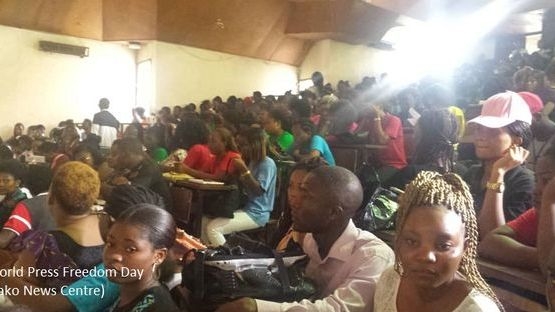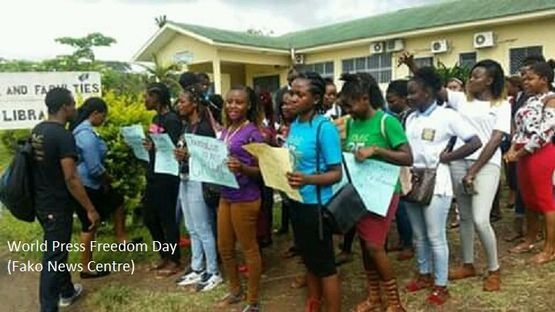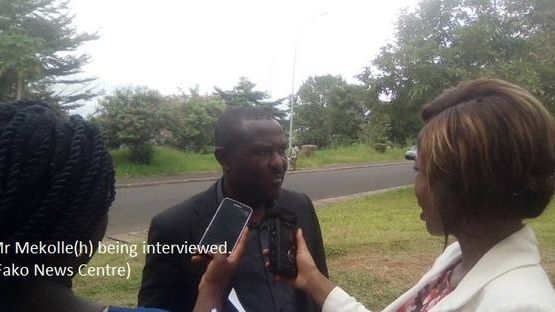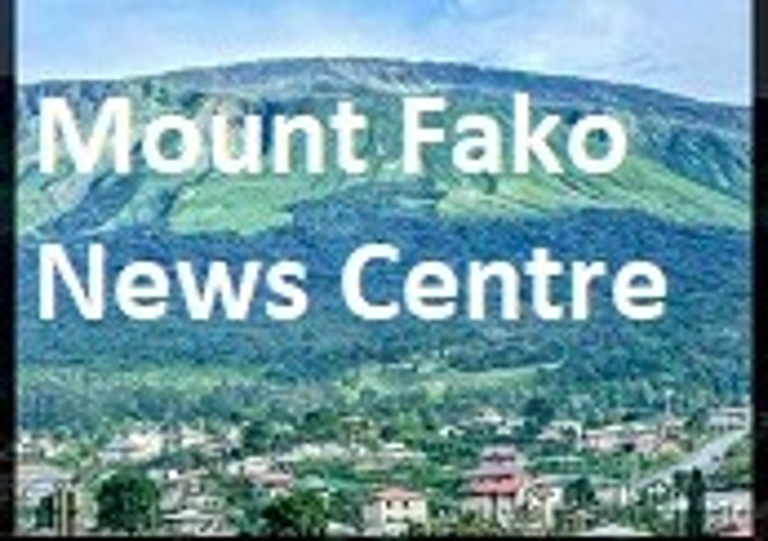World Press Freedom Day
Journalism cautioned against rushing to publish without verifying
By Enjema Stone in Buea for Fako News Centre
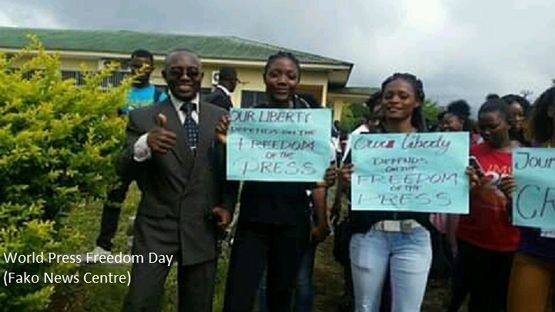

Journalism students at the Department of Journalism and Mass Communication of the University of Buea, Cameroon, have been cautioned to avoid publishing information without crosschecking with different sources to confirm the facts.
Presenting on the topic, “Media and Democracy: Journalism and Elections in times of Disinformation,” the Guest Speaker, Senior Journalist with CRTV, Henry Mekole (pronounced Mekolleh), told the students that knowing the right sources to contact for information in every situation is very important in an era that lots of individuals are using social media platform to spread false and distorted information for propaganda purposes.
Mr Mekole explained to students that there are lots of stakes involved during an election, as such, journalists must contact all the stakeholders involved, be it the political parties or candidate running for the elections, the election management body, experts in elections for analysis, state officials, amongst others while compiling their reports or running debate programmes on radio or television.
He also added that while acting as the watchdog of the electoral process, the journalists must be able to educate the public on the pre-election, the election and post-election periods. That is, they must be able to sensitise citizens and mobilise them to register, collect their voter cards, encourage voters to vote and follow up the counting of the ballots to the proclamation of the results.
According to Mr Mekole, the journalists can only achieve this if they are also educated on the issues they cover. In the case of elections, he noted that they must be vested with the electoral code, the document that explains how the electoral process is conducted. He also cautioned journalists to be fair to all the candidates or political parties contesting for elections by avoiding taking sides.
Adding his voice to that of Mr Mekole, FakoNews Centre’s Moki S. Mokondo observed that journalists often inform without educating the public. He explained that journalists are not only supposed to gather information and transmit to the public, but are expected to treat the information and analyse it in a socially responsible manner fit for public consumption.
Mr Moki who also lectures on media ethics and other journalism courses in the Department of Journalism and Mass Communication, encouraged journalism students to be widely read and to consult experts on issues they lack mastery for better analysis on what they report on. He also frowned at the syndrome of journalists rushing to publish information without verifying the authenticity of the information. He explained that this has an effect on the credibility of the journalists and the media organisation the journalist work for.
According to Mr Moki, there are lots of interests during elections and the journalists should avoid reporting on issues with their interest at stake. He explained that it ethically, it is often difficult for the journalist to draw a line between their personal interest and that of the public. The journalists should therefore explain to their editors if they have relatives or friends contesting in an election so that others who do not have personal interest in such situations to be assigned to cover the events.
These issues and more were part of the presentation that took place on Friday May 3, 2019 at the University of Buea campus as part of activities to commemorate the World Press Freedom Day. These activities were organised by the Department of Journalism and Mass Communication, University of Buea bringing together senior journalists and experts to educate the students from their world of experiences.
